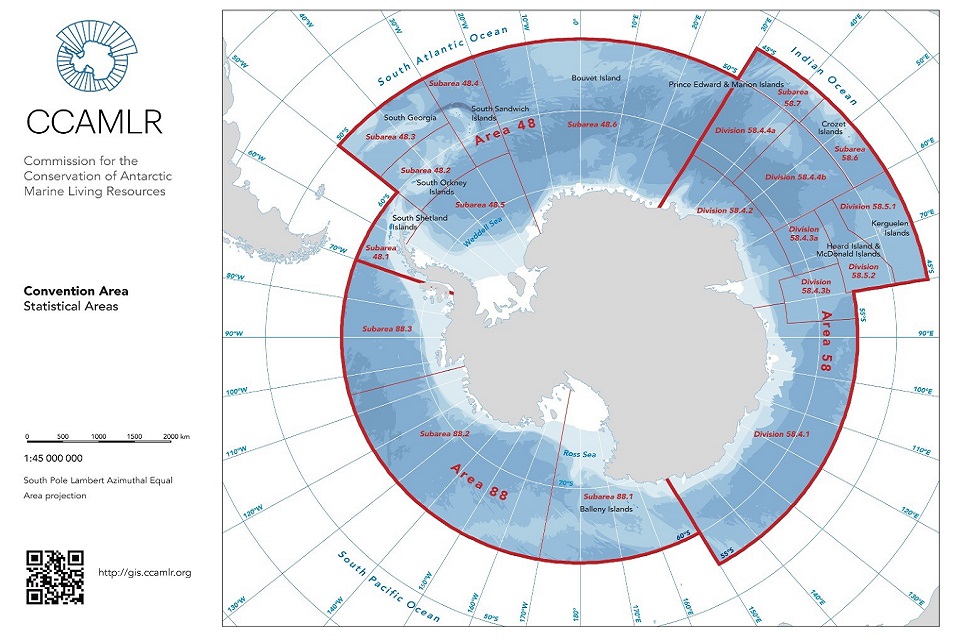This year’s annual meetings of the Commission for the Conservation of Antarctic Marine Living Resources (CCAMLR) and of its subsidiary bodies were held in Hobart, Australia from 7 October to 1 November. CCAMLR was established by international convention in 1982 with the objective of conserving Antarctic marine life, in response to increasing commercial interest in Antarctic krill resources. The Commission is a consensus-based organisation consisting of 26 Members (25 countries and the European Union).

ACAP’s Executive Secretary, Christine Bogle and Science Officer, Wiesława Misiak attended this year’s meetings, along with observers from other bodies.
Issues reported and discussed of relevance to the conservation of albatrosses and petrels included:
- The second year in which there were no reports of illegal fishing in the Convention Area (and thus fishing that is assumed not to use bycatch mitigation measures);
- New prohibitions of the discharge of plastics and dumping and discharging of oil or fuel products from fishing vessels in the entire Convention Area;
- Agreement on precautionary catch limits for all toothfish Dissostichus sp. fisheries in the Convention Area; and
- For another year no new Marine Protected Areas were established. Instead, CCAMLR reported “Research and monitoring plans for existing marine protected areas (MPAs), as well as proposals to establish three new MPAs – in East Antarctica, the Weddell Sea, and the Western Antarctic Peninsula – were the subject of much discussion. Members will continue to work intersessionally on proposals for these MPAs before they are again considered at next year’s meeting.”
See CCAMLR’s full news release on this year’s meetings here.
John Cooper, ACAP Information Officer, 27 November 2019

 English
English  Français
Français  Español
Español